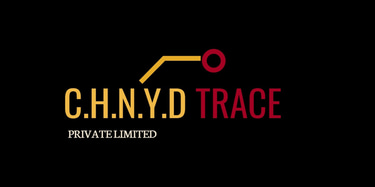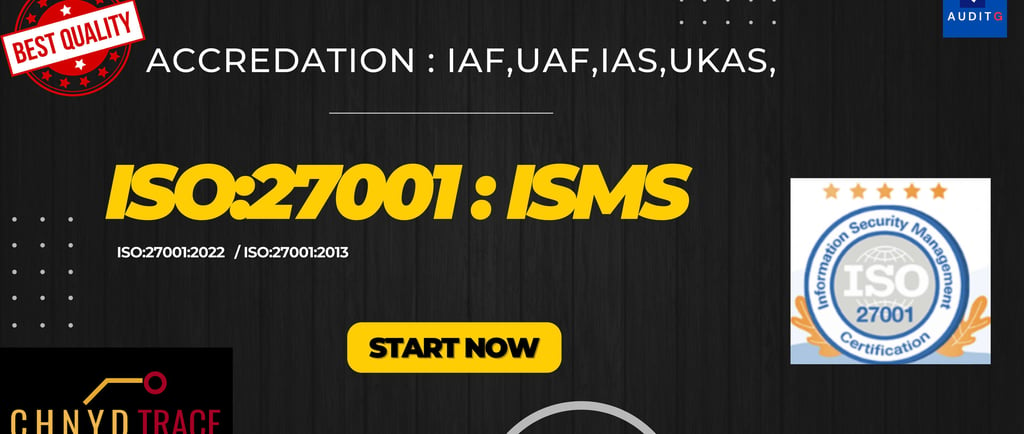buy iso 27001:2022 certification for companies
buy iso 27001 2022 certification for companies with use cases
11/23/20245 min read
What is ISO 27001:2022 Certification?
ISO 27001:2022 is an international standard specifically designed for establishing, implementing, maintaining, and continually improving an information security management system (ISMS). The primary purpose of this certification is to provide organizations with a comprehensive framework that assists in identifying and mitigating information security risks while ensuring confidentiality, integrity, and availability of information assets. This standard emphasizes the importance of evaluating information security risks within the context of the organization’s business objectives and legal requirements, which underpins the significance of robust information management protocols.
The structure of the ISO 27001:2022 standard is organized into several sections that offer guidance on various aspects of information security management. Key terminologies central to ISO 27001 include "risk assessment," which refers to the process of identifying, analyzing, and evaluating risks, and "controls," which are the security measures put in place to address identified risks. Understanding these terms is crucial for organizations seeking certification, as they play a pivotal role in the implementation of an effective ISMS.
This updated version of the standard contains several important differences compared to its predecessors. Notably, ISO 27001:2022 introduces amendments that align the standard with the latest advancements in technology and evolving security threats. Key updates include improved risk management processes, the incorporation of privacy considerations, and an emphasis on integrating security into the organizational culture. As such, ISO 27001:2022 ensures that organizations remain adaptive to the dynamic nature of information security challenges, thereby promoting a proactive rather than reactive approach to risk management.
Overall, achieving ISO 27001:2022 certification embodies a commitment to maintaining high standards of information security and establishes a competitive advantage in today's increasingly security-conscious marketplace.
Use Cases: Practical Applications of ISO 27001:2022 Certification
The implementation of ISO 27001:2022 certification has become increasingly important across diverse industries, providing organizations with a structured approach to managing information security. One significant area where this certification has proven beneficial is the technology sector. For instance, a prominent software development company adopted ISO 27001 standards to enhance its data protection measures. By implementing an Information Security Management System (ISMS) aligned with these standards, the company not only safeguarded sensitive client information but also improved its overall operational effectiveness, thereby gaining a competitive edge in a saturated market.
In the healthcare industry, where patient data security is paramount, ISO 27001:2022 certification has been instrumental in mitigating risks associated with data breaches. A leading healthcare provider leveraged the certification to establish stringent access controls and regular audits, ensuring compliance with regulatory requirements such as HIPAA. The result was a significant reduction in security incidents, fostering a culture of trust and safety among patients.
Financial institutions are another sector where ISO 27001:2022 has found a practical application. A bank implemented this certification to enhance its information security framework, which is critical for protecting financial data and maintaining customer confidence. By aligning its policies with ISO 27001 requirements, the bank not only achieved regulatory compliance but also improved its risk management process, leading to a more robust system for detecting and responding to potential threats.
Government organizations have also realized significant advantages from ISO 27001:2022 certification. For example, a municipal government achieved better data governance and transparency by adhering to the standards. This not only improved operational efficiency but also strengthened public trust through enhanced data protection and accountability measures.
These real-world examples illustrate the practical applications and benefits of ISO 27001:2022 certification across various industries, highlighting its critical role in ensuring security, compliance, and customer trust in today’s increasingly digital landscape.
Benefits of Achieving ISO 27001:2022 Certification
Investing in ISO 27001:2022 certification presents numerous advantages for organizations aiming to bolster their information security management systems. One of the primary benefits of this certification is enhanced risk management. By implementing the ISO 27001 framework, companies are compelled to systematically identify, assess, and manage risks associated with their information assets. This process not only mitigates potential threats but also promotes a culture of ongoing risk awareness within the organization.
In addition, achieving this certification leads to increased operational efficiency. Organizations often find that formalizing their information security processes allows for more streamlined operations. This efficiency can reduce redundancies and optimize resource allocation, enabling teams to focus on core business activities without the overshadowing concern of security breaches. The structured approach promoted by ISO 27001:2022 encourages a proactive rather than reactive response to information security challenges.
Moreover, obtaining ISO 27001:2022 certification enhances an organization’s reputation. As businesses increasingly recognize the importance of cybersecurity, achieving this standard signals to clients and partners that a company is committed to safeguarding sensitive information. This commitment not only fosters trust but can also lead to improved business relationships and increased customer loyalty.
Furthermore, organizations certified under ISO 27001:2022 gain a significant competitive advantage in the market. Many clients and industry leaders now prioritize partnerships with certified companies, viewing them as more reliable. Compliance with legal and regulatory requirements is another critical benefit; the framework aids companies in adhering to data protection laws, thereby reducing the risk of non-compliance penalties. Additionally, implementing best practices in information security leads to improved internal policies and procedures, which further fortifies the organization’s overall data protection strategy.
Steps to Obtain ISO 27001:2022 Certification
Obtaining ISO 27001:2022 certification involves a systematic approach that includes several essential steps. The initial stage is conducting a gap analysis. This process helps organizations identify existing information security gaps compared to the ISO 27001:2022 standard requirements. By understanding the current state of their Information Security Management System (ISMS), organizations can develop a strategic plan to address these gaps.
The next step is to perform a comprehensive risk assessment. This assessment allows organizations to recognize potential threats and vulnerabilities within their information systems. The results of the risk assessment will guide the organization in developing mitigating controls necessary for compliance with ISO standards. Ensuring a thorough risk assessment establishes a robust foundation for information security initiatives.
Following the risk assessment, organizations should focus on developing and implementing their ISMS. This framework encompasses policies, procedures, and controls designed to manage and protect information assets. During this phase, engaging all relevant stakeholders is critical to ensure that the ISMS aligns with organizational goals and legal requirements.
Once the ISMS is in place, organizations should proceed to the certification audit. It is advisable to select a reputable and accredited certification body to conduct this audit. A successful audit will confirm that the organization’s ISMS meets all ISO 27001:2022 requirements, leading to the awarding of certification.
Post-certification, maintaining compliance is equally crucial. Organizations must regularly review and improve their ISMS to address new challenges and changing environments. Ongoing training, internal audits, and management reviews will help sustain the ISMS's effectiveness. Moreover, adopting best practices such as fostering a culture of security awareness can significantly enhance the overall information security posture.
In conclusion, achieving ISO 27001:2022 certification is a critical endeavor that requires careful planning and execution. By following these outlined steps, organizations can streamline their certification journey and cultivate an effective ISMS that not only meets regulatory requirements but also enhances their resilience to information security threats.








